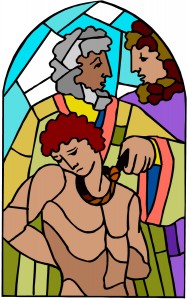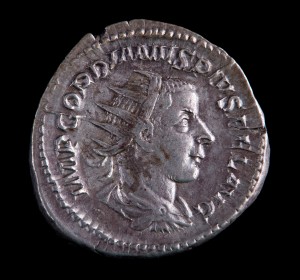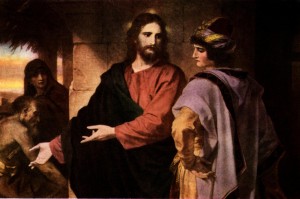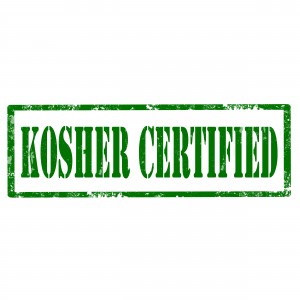Genesis 38:29, Pharez [Heb. Peretz]. This name means “breach” or breaking through by pressing forward.” It is from the root word meaning “breach, gap, bursting forth, outburst; broken wall.” Yeshua is from this branch of Judah. Peretz received his name because of the violent nature of his birth. He was born before his twin brother, Zerah. The Peretz family line was the more prominent of the Peretz-Zerah family lines.
Matthew Henry in his commentary notes that it’s a wonder that off all the tribes Yeshua should proceed from this one considering its incestuous origins and YHVH’s displeasure over such sin. Yet Henry goes on to say that YHVH chooses human instruments not because of their merits, but out of grace, and that Yeshua came into the world to save sinners, even the chief of sinners, including those of his own family. Moreover, the worthiness of the Messiah wasn’t to be found in any meritorious moral qualities of his ancestors, but in himself alone. It is a wonder that the Jews boast at all about their lineage in light of its incestuous origins. As Jeremiah warns, a man should not glory in anything they are or have done but only that “he understands and knows me, that I am YHVH which exercise lovingkindness, judgment, and righteousness, in the earth, for in these things I delight” (Jer 9:23–24).
The inclusion of the accounts of Judah, Tamar, Pharez and Zerah further confirm the divine origin of the Scriptures. It is the generally accepted tradition in both Jewish and Christian circles and the opinion of conservative biblical scholars that Moses wrote the Torah (the first five books of the Bible). Genesis 38 gives important background information about the founding of the tribe of Judah and, more importantly, about the origins of the Messiah who was born out of this tribe. Other than a couple of oblique prophecies, there is no overt indication in the Torah that the Messiah, the Redeemer of Israel, would could come from the tribe of Judah, yet Moses included the inglorious details of the founding of this tribal family therein for no apparent reason. Those of us looking back in history at the Messiah’s birth can see how Genesis 38 fits perfectly into the overall biblical redemption story, but those in times past looking forward to the Messiah would have likely been hard pressed to see this. From our vantage point, this is yet another proof of the hand of the Divine Providence in the writing of the Scriptures.
Genesis 38:30, Zerah [Heb. Zerach]. This name means “rising” and is from the word meaning “shining, dawning.”The root of this word means “to rise, to come out or appear.” His hand first exited the womb and a scarlet cord was placed on it, although he pulled his hand back in and his brother was the first to be born.
The tying of the scarlet cord onto the hand signifies the seriousness the ancient patriarchal communities placed upon the position of firstborn or primogeniture. The firstborn was the head elder of the family and it was his duty to care for his younger sibling. Hence, he was given a double portion of the father’s inheritance, so he would have the extra resources to help the others should the need arise. Although the hand of Zerah was the first to exit the womb, Pharez’s head crowned first and so he is considered to be the firstborn and he is listed first in the several instances in the Scriptures where their names are mentioned together.





